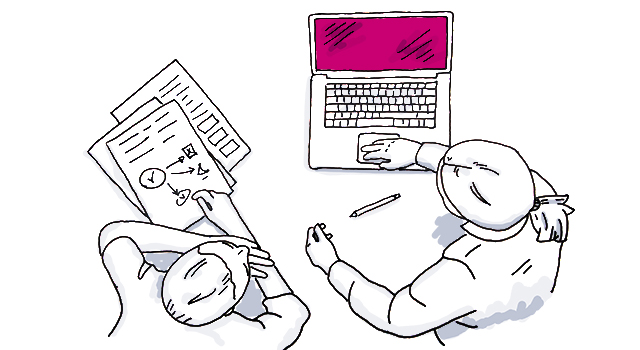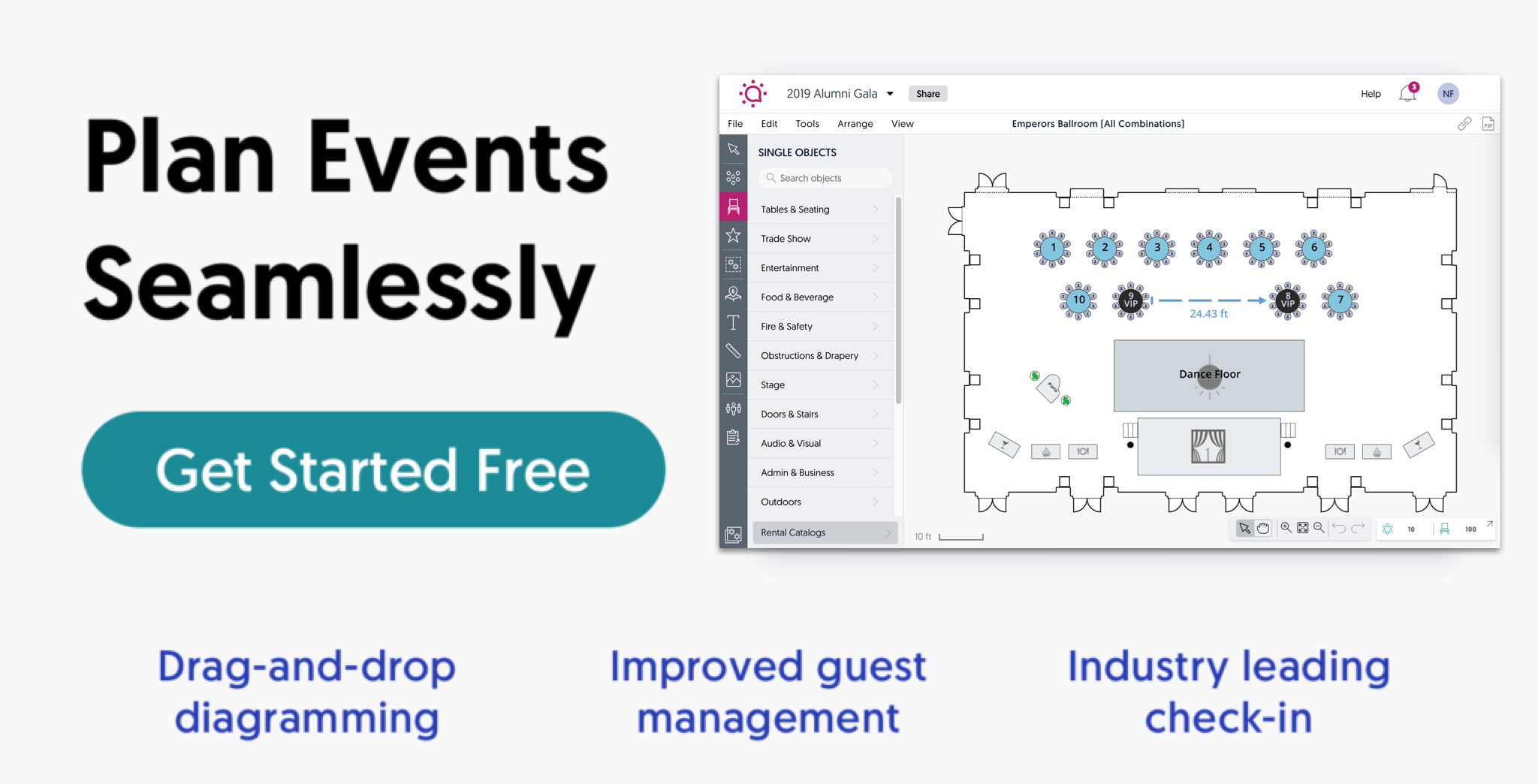
How to Plan a Corporate Event: 8 Tips to Know
The time has come: you’ve been given the opportunity to plan a big event for your company that will leave employees feeling inspired and energized. That’s great! But if your normal responsibilities don’t include event planning, you may be feeling overwhelmed. Even after reading a thorough guide to corporate event planning, you may decide that working with a professional event planner will give you the flexibility to focus on the big picture, and let someone else handle the nitty-gritty details. Want to learn how to plan a corporate event with the help of an outside planner? Keep reading!
Professional corporate event planners are a great choice for a lot of corporate events. They bring years of experience and know a lot about the obstacles that may come up during the planning process. By working with a team of corporate event planning specialists, they will already have a list of vetted vendor partners and established teams needed to pull in to get the job done. They will have the ability to have more control of costs, timelines, and quality, with extensive knowledge and wisdom regarding the latest trends, newest venues, budget-saving secrets and details you may not be aware of.
However, an outside corporate event planner probably doesn’t know your company culture. They also likely don’t know the personalities involved, or the message you’d like your event to convey. That’s where you come in. Whether the corporate event is a small team training or a large multi-day extravaganza, you need to carefully manage the relationship you create with your event planning team to pull off an event to remember.
Learn how to plan a corporate event with these 8 tips:
1. Know your corporate event objectives.
In order to run a successful event, you’ll first need to know what success looks like. What is leadership expecting from this event? What characteristics will make everyone agree that the event was successful?
Corporate events usually focus on one main goal. They’re generally held to communicate a message or increase a behavior within the organization. They’re a great way to increase company morale, convey a new message, or share valuable information.
Here are some common objectives for corporate events:
- Changing customers’ perceptions
- Creating a stronger team bond
- Motivating sales personnel and other employees
- Entertaining executives and managers
- Planning for the upcoming year
- Training new staff
- Creating opportunities for press or social media coverage
- Supporting marketing activities
- Creating excitement for a new product or initiative
- Making one person (the boss) happy
2. Create a corporate event plan.
Once you’ve decided on your main event objective, you can begin planning. Even if you’re hiring help, create a brief plan that outlines the most important information about the event. It should include:
- Event goals and objectives
- Message(s) you want to share
- Your audience and number of attendees
- Event format and theme
- Event budget – use this cost estimator for help!
- Expected ROI (and relevant metrics to measure)
Details like event location, technology, vendors, food and beverage, entertainment, and other event logistics can be left out of this initial plan. The planner you hire will be taking charge of a lot of those things. The goal for this early plan is to convey your vision for the event and what you would like to accomplish.
3. Communicate the big picture.
Your main goal as the company’s representative for the event is to convey information about the company to the planner. Event planners likely don’t know a lot about your company and its culture ahead of time. You’re the best source of information they have. Try to give the planner a good idea of the history of the event, the goals that leadership has communicated to you, and any thoughts about the overall vibe of the event.
Do you picture a formal sit-down to relay the company’s strategic goals for the year? Or is this a retreat where employees can unwind and be rewarded for their efforts? It helps to do some prep work ahead of time to think about what a successful event will look like, and write down your thoughts. You can even include some pictures to inspire the planner. The clearer your vision is, the easier it will be for the planner to help you create a great event.
4. Decide roles and responsibilities.
While the planner will handle a lot of the details, they will likely turn to you for some things. In your first meeting, ask what they need from you and how you can best help create a great event. They’ll appreciate your forethought and willingness to help. Let the planner know what internal resources you can rely on, whether that’s specific people who are available to help or departments.
You will likely be in charge of communicating with attendees before the event, liaising with corporate leadership about planning progress, and guiding the overall strategy for the event. Beyond that, the tasks you take on are largely up to you. If there’s something you definitely want to do yourself, or something you know is beyond your abilities, this is a good time to let the planner know. Don’t be afraid to speak up. The planner’s ultimate goal is to make sure you and the company are happy with the event.
5. Leave certain things to the professionals.
The reality is that you’ve hired a planner for a reason. Although it may be hard, you need to trust the planning team to handle the details you haven’t taken on. This can be difficult when you know that the responsibility for the event ultimately falls on you. But if you micromanage or try to get too involved, the planners won’t be able to do their jobs.
So take a deep breath and focus on the big picture. Enjoy the extra time that you’ve gained by delegating the details to your trusted event planning team.
6. Have one source of truth.
With lots of people working on your corporate event, it’s important to have one place where everyone can go for answers. While the planner will likely be using their own project management system, coordinate with them to make sure there is somewhere that you can access the event details. This may mean that you’re granted access to the planner’s system, that you use your own internal system, or that you devise a shared system with access for anyone who needs it.
As you get closer to the event and need to confirm details, you don’t want to wait for a response from the planner. Having one place for all of the documents and assets related to the event will save you that headache.
7. Don’t give yourself a defined role the day of the event.
If you’re helping plan a corporate event, you’re likely a person who takes on additional tasks on top of your normal responsibilities. But when it comes to the day of the event, you need to curb that impulse. Don’t raise your hand for lots of last-minute tasks that will tie you up on the day of the event. No picking people up from the airport, checking attendees in at registration, or taking notes during break-out sessions!
As the person in charge of the event internally, you need to be available for any last-minute issues or obstacles. When the caterer is stuck in traffic or the A/V person needs to know where to set up, your team will turn to you. Make sure you’re available to everyone involved in the event internally, as well as the external team you’ve hired, so that you can pull off a seamless and inspiring experience for all of your attendees.
8. Don’t forget to follow up.
Once you get to the event day and things are running smoothly, it can feel like there’s nothing left that could go wrong. That’s usually when the keynote speaker says, sure, we can send that around to everyone after the event in response to an audience question, and no one makes a note of what you need to send.
Event follow-up is just as important as the event itself. Follow-up tasks in the form of actions or answers to questions often form the real work that the event was leading up to. So although it shouldn’t be a task you assign to yourself (see above), you do need to make sure that you’ve thought about event follow-up during the planning process. If you’re running breakout sessions or small working groups, make sure to assign note-takers who keep track of any actions for after the event. In any given room, those team members should be listening for promises of follow-up from speakers, questions that still need to be answered, and feedback for the next event from attendees. You can liaise with your event planning team to make sure that follow-up occurs seamlessly for attendees and follows through on the promises of the event.
Put these corporate event planning tips to good use!
Ready to hire a corporate event planner for your event? Check out our guide to finding a freelance event planner.


